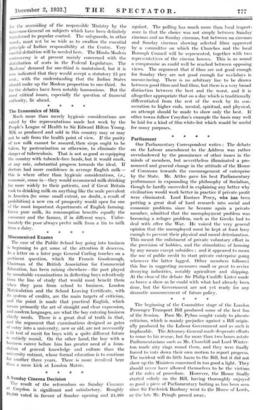Misconceived Exams The case of the Public School boy going
into business is beginning to get some of the attention it deserves. In a letter on a later page General Curling touches on a pertinent question, which Sir Francis Goodenough, Chairman of the British Association for Commercial Education, has been raising elsewhere—the part played by unsuitable examinations in deflecting boys relentlessly from the line of study that would most benefit them when they pass from school to business. London Matriculation and the School Leaving Certificate, with its system of credits, are the main targets of criticism, and the point is made that practical English, .which means primarily the art of straight and clear expression, and modernlanguages, are what the boy entering business chiefly needs. There is a great deal of truth in that, and the argument that examinations designed as gates or entry into a university, new or old, are not necessarily a fit test of merit for boys with a quite different future is entirely 'sound. On the other hand, the boy with a business career before him has greater need of a foun- dation of general knowledge• and culture than the university entrant, whose formal education is to continue for anOthei three years. There is more involved here than a mere kick at London Matrie.
* * * *










































 Previous page
Previous page